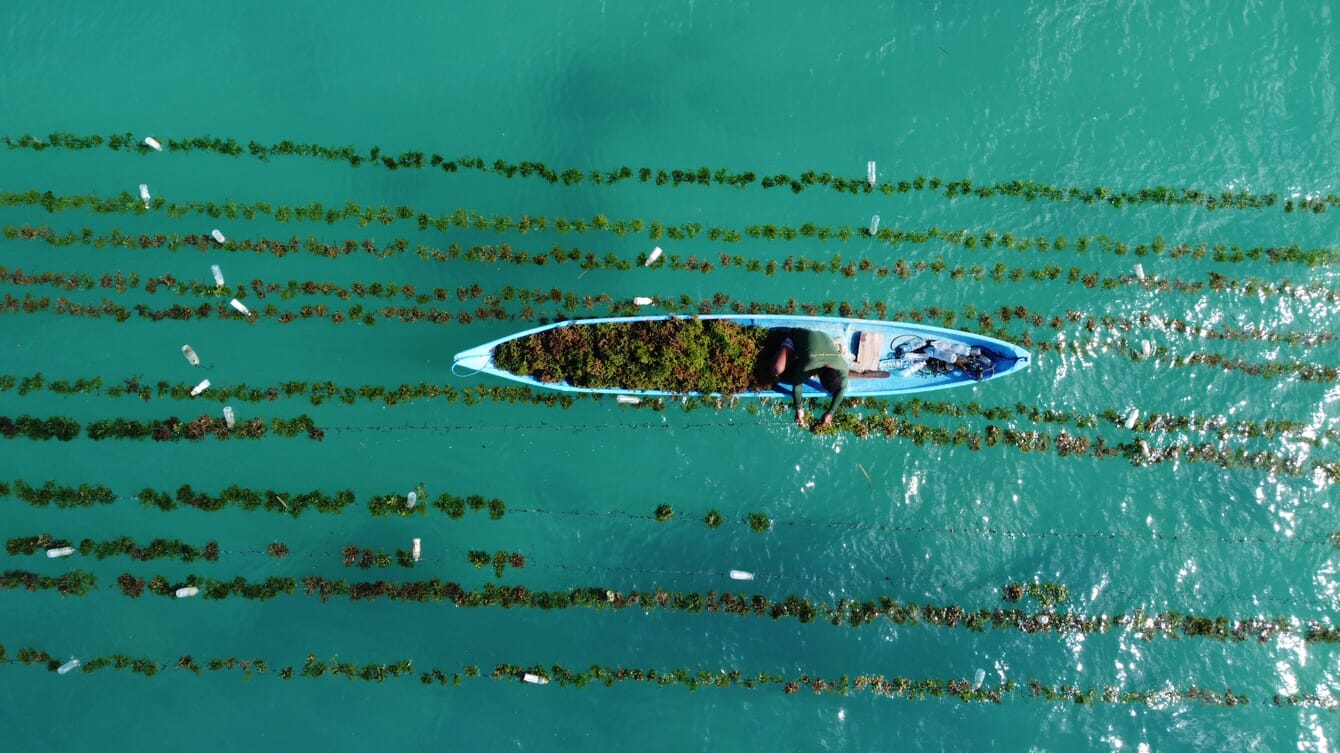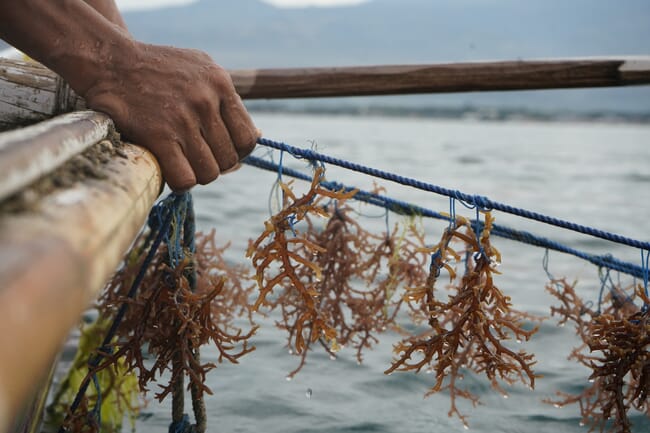
The event focused on seaweed farming in Asia-Pacific, as the region is the world's leading seaweed producer © Karlotta Rieve, Hatch Innovation Services
According to the event organisers, Seagriculture Asia-Pacific welcomed 187 attendees from 113 companies and 31 different countries across the globe. Some 23 speakers presented their topics during a two-day conference programme, which included special features such as a virtual seaweed tour and a panel discussion on seaweed state of play in Asia-Pacific. The first edition is mostly focused on seaweed farming in Asia-Pacific, as the region is the world's leading seaweed producer, which is expected to reach nearly $16 billion by 2029.
The first Asia-Pacific conference was held online, which allowed participants from all over the world to join these two days of the conference. According to a post-event news release, the organisers plan to announce the dates for the next edition of Seagriculture Asia-Pacific soon.
Keynote speakers and interactive sessions
Keynote speakers Simon Funge-Smith, Food and Agriculture Organisation’s (FAO) regional office for Asia and the Pacific, Thailand; and Brian Von Herzen from the Climate Foundation, Australia, talked about the current production of seaweed in Asia, trade and social challenges, hurricane-proven offshore seaweed mariculture, deepwater irrigation and climate disruptions.

The organisers designed the programme to cover key and vital information from the region’s seaweed experts © Seagriculture Asia-Pacific
The organisers designed the programme to cover key and vital information from the region’s seaweed experts. In the six session topics – ranging from smart farming technologies to seaweed nutraceuticals – some 20 experts explored the regional aspects of cultivation, processing, sales and business planning in kelp farming as well as technical trends and prospects for the future. Interactive discussions were an important part of all sessions over the two days.
Session topic 1: Smart seaweed farming
The first session discussed new trends in seaweed farming, mechanization, new technologies and smart farming aspects. Shrikumar Suryanarayan from Sea6 Energy talked about farming tropical seaweed as a scalable and sustainable future industrial feedstock. Job Schipper from SWD Connectors presented scaling of the seaweed farms. Tran Dinh Luan, a general director of D-Fish, shared his experience in important aspects of seaweed farming.
Session topic 2: Seaweed business and investment aspects
The seaweed experts informed delegates about the business aspects of seaweeds. Paul Dobbins from World Wildlife Fund, Koji Yamamoto from Aquaculture Stewardship Council (ASC) and Karlotta Rieve from Hatch Blue shared insights and ideas on new markets for a productive, scalable and responsible seaweed farming.

Seaweed farmers need to identify new markets for their produce in order to scale © Karlotta Rieve, Hatch Innovation Services
Session topic 3: Panel discussion: Current situation of seaweed in Asia-Pacific
During this online panel discussion moderated by Fionnuala Quin from Kelpy – Seaweed Biopackaging and three seaweed experts including Maya Puspita from SELT Alga Indonesia and Indonesian Seaweed Association (ARLI), Jo Kelly from Australian Seaweed Institute and Dr CRK Reddy from Institute of Chemical Technology discussed various topics related to seaweeds to describe the seaweed state of play in this area. The themes that were covered are acquiring cultivation permits, the post-coronavirus landscape and health aspects of seaweeds.
Session topic 4: Seaweed breeding and disease aspects
Experts shared their knowledge on breeding and disease aspects related to seaweed cultivation. Scott Lindell from Woods Hole Oceanographic Institution talked about a selective breeding programme to improve the productivity of sugar kelp, Nita Rukminasari from Universitas Hasanuddin discussed modelling of tropical seaweed cultivation and Professor Michael Y Roleda talked about current eucheumatoid research in the Philippines.
Session topic 5: Seaweed applications
Rob Kinley from Australian company FutureFeed presented evolution through the foundation story to the up-to-date status of Asparagopsis science. Jang K Kim, a professor from Incheon National University, discussed the carbon dioxide removal (CDR) capacities of marine macroalgae and potential applications of macroalgal biomass with case studies in Korea. Pia Winberg from PhycoHealth and Venus Shell Systems discussed the wide diversity of nutritional profiles and biochemistry of seaweeds.
Session topic 6: Virtual seaweed tour around the world
Mitchell Lench, founder of Ocean’s Balance, US; Stephanie Debels, SEACROPS, Belgium, professor Alejandro Buschmann, Universidad de Los Lagos, Chile; Josh Castle, Aboitiz Reimagine, Philippines; and Jorunn Skjermo, SINTEF, Norway presented what their organisations are doing to improve seaweed production, propose possible ways of cooperation or innovative solutions.
Kuno Jacobs, managing director of DLG Benelux stated: “Seagriculture shows that it is a great and important way to bring people together to discuss important topics, receive insights, network with experts or enthusiasts who are only just starting with their seaweed activities. We are glad that we can expand the boundaries of our conference by making it global, and we are glad that the first edition was held in such a friendly and supportive atmosphere. We see that Asia-Pacific has a huge potential and we are committed to contribute to the development of the blue economy in this important region.”
Click here for more information about the Seagriculture conference.




